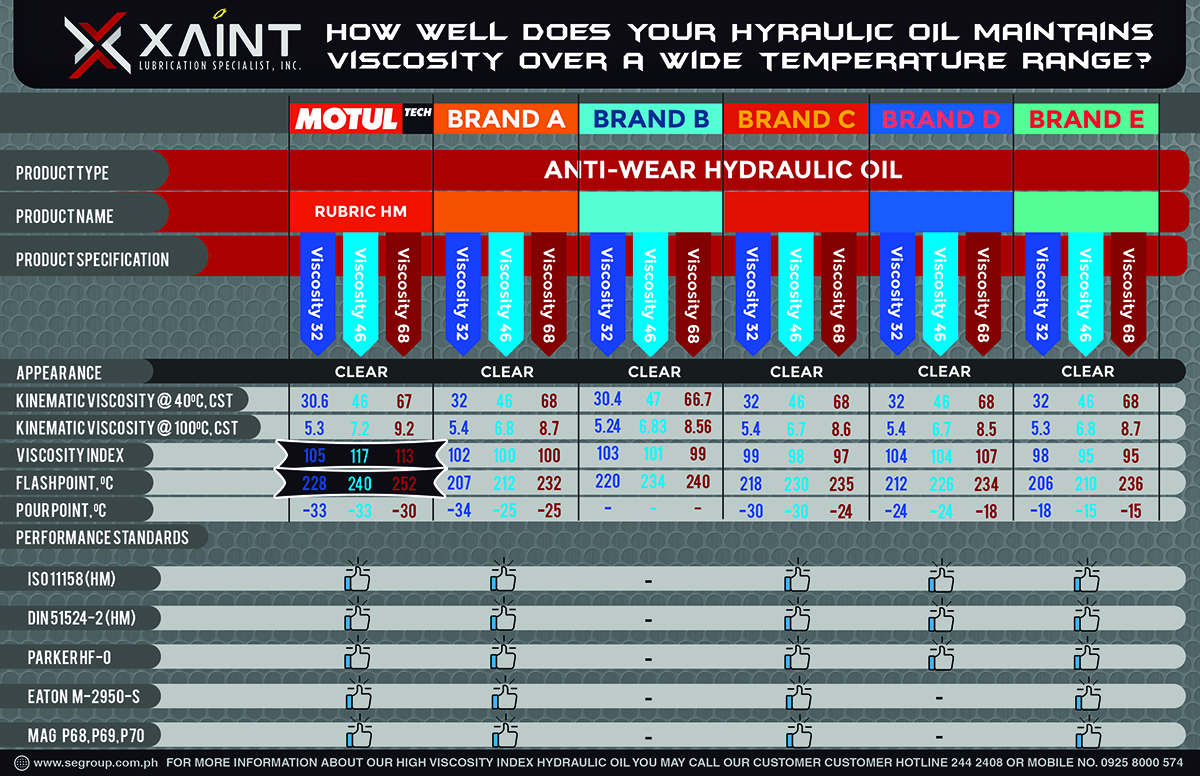
05 Nov How Well Does Your Hydraulic Oil Maintains its Viscosity Over a Wide Temperature Range?
Viscosity index is a number that indicates the viscosity of a hydraulic oil change with temperature. When the viscosity index is greater, the smaller the change in fluid viscosity will be and vice versa. Usually, mineral-oil fluids in hydraulic have viscosity index of around 100, although products range from below 100 to 200.
If you have an engine that is dependent on hydraulic oil, then this article is for you in order to know more about hydraulic oil viscosity.
Great hydraulic oils with the highest viscosity remains stable and doesn’t vary much over a wide temperature range. In return, this can help your engine perform consistently at different temperature ranges.
But selecting the right hydraulic oil for your engine is not that easy. You need to pay attention to your equipment’s requirements, recommendations and specifications.
To help make your choice, determine the type of equipment where you will use the fluid. Second, consider the severity of the cycle of duty, and lastly, know what temperatures the equipment will experience while it is in use.
Choosing the right viscosity fluid is important because it ensures the equipment’s performance.
Low viscosity index signified a large change of viscosity with changes of temperature. The hydraulic oil becomes thin at high temperatures and thick at low temperatures. The ideas oil for most purposes is one that maintains a stable viscosity throughout temperature changes.
Remember that it’s important to use hydraulic fluid with the recommended viscosity when you are running your equipment. Once again, when the viscosity index (V.I.) is low and the fluid is too thin, users might see a problem such as overheating. When it comes to being thick, the equipment might have a hard time to start and could lead to problems such as cavitation.
Check out this infographic to know why MotulTECH could now be your best choice when it comes to hydraulic oil!

Still need help regarding hydraulic oil viscosity and more? Contact us today!
